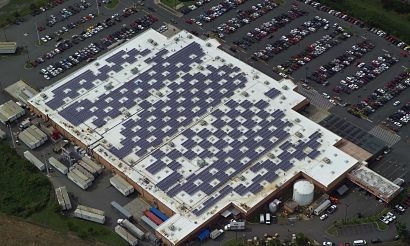
Once signed by Governor Ricardo Rosselló, Puerto Rico will join Hawaii and California in establishing a transition to 100 percent renewable energy. The move has been applauded by The Solar and Energy Storage Association of Puerto Rico (SESA-PR).
“Policymakers have listened to the solar and storage industry leaders’ input every step of the way while developing this historic legislation” said PJ Wilson, President of SESA-PR. “SB 1121 eliminates many of the barriers that have frustrated solar deployment at all levels for years and creates a clear vision for ramping up clean energy, but actually implementing the law will require strong continued collaboration as Puerto Rico’s power grid transforms from 97% imported fossil fuel dependence to 100% local clean energy.”
Adrian Stella, managing member of Renewable Energy Authority, LLC, added that current utility scale solar projects are well positioned to jumpstart the objectives of this legislation and that if policy makers push them forward, Puerto Rico can quickly show the world that the implementation of renewable energy on the island is for real.
SB 1121 establishes a 100 percent renewable energy renewable portfolio standard (RPS) by 2050, bans coal plants starting in 2028, provides for automatic interconnection to the grid of customer-sited solar energy systems below 25 kilowatts, and reduces the utility approval time to 90 days for commercial and industrial solar projects. It also creates a 5-year window of full compensation for consumers’ solar energy production, and streamlined permitting for utility-scale projects. SESA-PR applauds the bill’s provisions as effective mechanisms to facilitate Puerto Rico’s achievement of the first target of 40 percent renewable energy by 2024.
Puerto Rico Governor Ricardo Rosselló has expressed his strong support for 100 percent renewable energy as part of his post-Hurricane María recovery vision and plan. The changes are intended to create a more resilient island built upon state of the art technology that transcends the diesel and coal-fired centralised generation electricity model, towards a clean, more decentralised energy system with local, renewable resources at its centre.
“This is the most forward thinking piece of legislation we have ever seen in the industry and it shows the commitment of the government towards renewables” said Alejandro Uriarte, CEO of New Energy.
Following hurricanes Irma and María in 2017, Puerto Rico’s diverse and sophisticated energy stakeholders from the private sector, civil society and government engaged in serious dialogue to arrive at concrete, consensual proposals for Puerto Rico’s energy future. Puerto Rico’s Senate drafted the new bi-partisan energy law (Senate Bill 1121) under the leadership of Senate Vice President Larry Seilhamer (NPP) and Senator Eduardo Bhatia (PDP), with strong support from both the Senate and House.
Additionally, SB 1121 bill establishes that solar energy users will have access to NEM within one month of a system’s installation, clarifies that the existing NEM policy shall be in place for no less than five years, and that new solar consumers will be grandfathered and protected from future policy changes for the next 20 years.
SB 1121 is showcasing the right way to build RPS standards, by clarifying that all scales of renewable energy production, including home solar energy, will count for Renewable Energy Certificates (RECs) for RPS compliance. The bill also exempts solar electric storage equipment from sales taxes and grants the Puerto Rico Energy Bureau more fiscal autonomy and powers to perform performance-based metrics, among many other innovations.
For additional information:
Solar and Energy Storage Association of Puerto Rico (SESA-PR)

